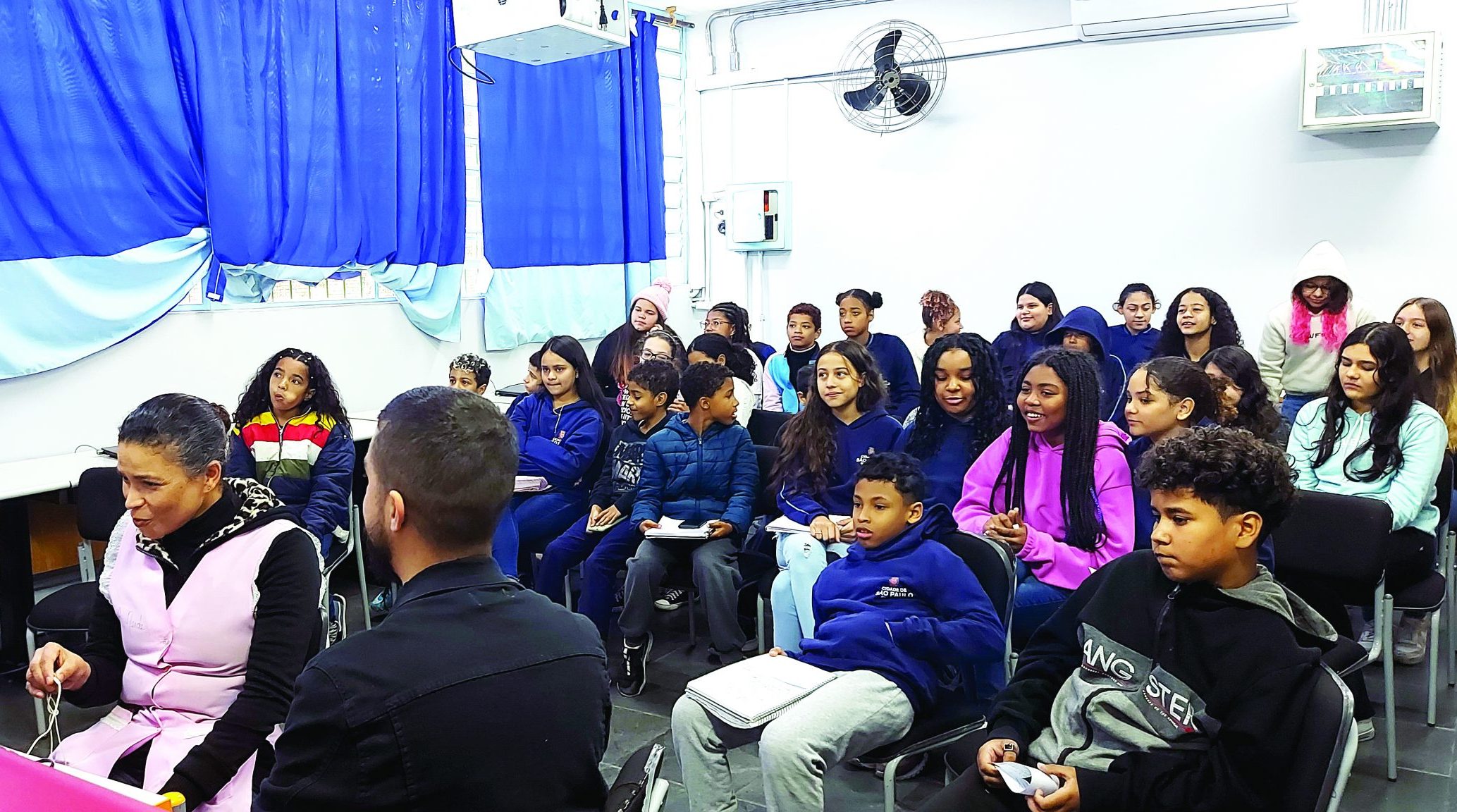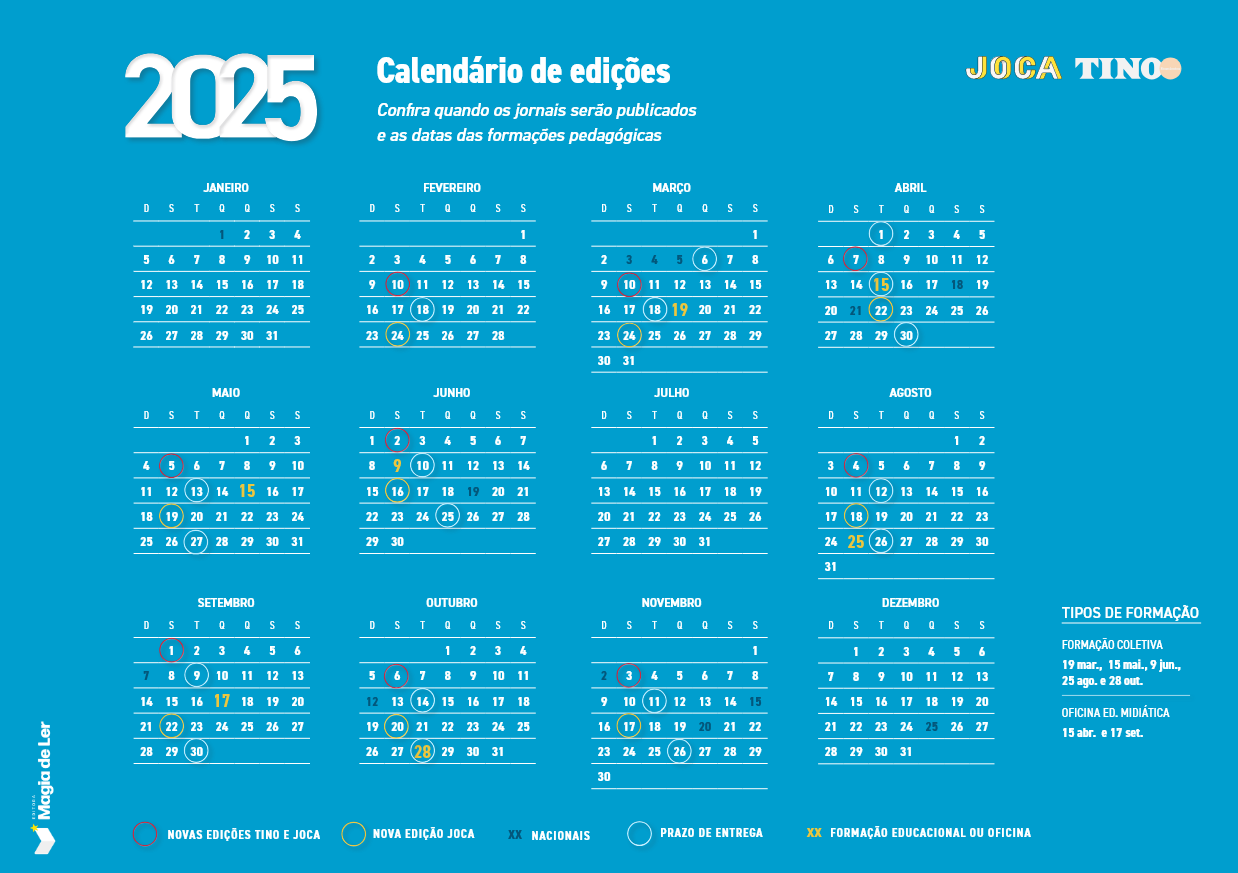Edições Impressas
22 de setembro de 2023
Press conference in school with Vini Campos – Level 3
Article published in Joca 212

Vinicius Campos, known simply as Vini, is an actor and presenter for Disney children’s programs who lives in Argentina with his family. It was through writing, however, that he found a space to talk about much more than would ever be possible on television.
One of the many books Vini has published is called O Amor no Tempos do Blog (Love in the Time of Blogs), inspired by the classic with a similar title, Love in the Time of Cholera by Colombian author Gabriel García Márquez. Vini’s work is about the love story of Bernardo and Luz, two young people who meet in a library and write for their blogs “Silent Ariza” and “Virtual Cinderella.”
The sixth-grade students at Professor Ricardo Vitiello elementary public school in São Paulo, Brazil, read the book and held a video press conference from school for the author. Check out the conversation below.
What made you want to be a writer?
I’ve always written. As a child, I would wake up secretly, and go to the computer to write soap operas, books, anything that came to mind. But I didn’t think of it as a profession. When I came to Argentina, I had a lot of free time, and my contract with Disney didn’t allow me to do other programs, plays, or TV commercials. But it did allow me to write books. So I started writing, and it was a way to express everything I wanted to but didn’t have space for on TV. My first book is called Expedições do Vini: Famílias (Vini’s Expeditions: Families); it’s about different types of families aside from the traditional one with biological parents and children.
Is “Love in the Time of Blogs” based on a real story?
When I was 20 years old, I dated a very beautiful girl, but she broke up with me. I was very sad. A cousin who lived in Recife, Brazil, then told me, “Come spend Carnival here, because it’s great for that kind of heartache.” We went to Olinda, a neighboring city, to stay in a house with just young people. When I arrived, I found out that her ten friends were deaf, because my cousin worked as a Brazilian Sign Language (LIBRAS) interpreter. While in that house, I began to realize that it was, in fact, just another language. I started to see them as equals. When I wrote the book, Bernardo [the main character] was my friend, and he really was dating Michele on that trip. But the love story in the library that I created is fiction. Only Bernardo and Michele are real.
Is your book’s main message that love can overcome any difficulty?
I don’t know. You know that the parents end up separating, right? There’s Bernardo and Luz’s love story, which works out, and there’s the story of the parents, which does not. I included this other plot because I think fairy tales deceive us by saying there’s a “happily ever after.” Love is a feeling; it lasts as long as it’s worth it. If I marry someone I love, but that person treats me badly later, love will end. Or sometimes, love ends even without that happening. Vinícius de Moraes, the composer from Rio de Janeiro, used to say, “May it be infinite while it lasts.” When we’re with someone, we think it’s forever. But if it ends, that’s okay too. The important thing is for it to end respectfully, being caring with each other.
Do you plan to launch a series for this book?
I really want to turn O Amor nos Tempos do Blog into a movie, and I’m already talking to several people to try to make that happen. But you know what I think spoils it? With Harry Potter, for example, before there was a movie, each person imagined Harry in a certain way. We only knew that he had a lightning bolt on his forehead. Since the movie came out, when I talk about Harry Potter, everyone thinks of actor Daniel Radcliffe. So, the book is cool because we write it together; I put the words together, and you, the readers, use your imagination.
Ixi! Você bateu no paywall!
Ainda não é assinante? Assine agora e tenha acesso ilimitado ao conteúdo do Joca.











Você precisa fazer o login para publicar um comentário.